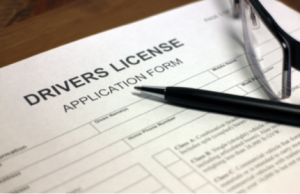
Organ Donation
 One end-of-life decision you might want to consider is if you wish to donate your organs after you die. The U.S. Department of Health & Human Services/Health Resources & Services Administration has a detailed list of what organs and tissues can be donated. If you do, make it part of the process when planning your advance directives and choosing your healthcare proxy. In fact, many people actually include this wish in their living will or allow their Healthcare Power of Attorney to make the decision. However, there are other things that can be done to accomplish this.
One end-of-life decision you might want to consider is if you wish to donate your organs after you die. The U.S. Department of Health & Human Services/Health Resources & Services Administration has a detailed list of what organs and tissues can be donated. If you do, make it part of the process when planning your advance directives and choosing your healthcare proxy. In fact, many people actually include this wish in their living will or allow their Healthcare Power of Attorney to make the decision. However, there are other things that can be done to accomplish this.
In most states, you can indicate this on your driver’s license. Some states will let you indicate this on your license plate.
You can also register with:
- American Society of Transplantation
- Donate Life America
- Mid-America Transplant
- The Health Resources & Services Administration of the U.S. Department of Health and Human Services (organdonor.gov)
- The United Network for Organ Sharing (UNOS)
The organ recipient pays all the expenses associated with the donation.
All organ donations are overseen by an Organ Procurement Organization (OPO). An OCO expedites organ transplantation by recovering the deceased donor’s organs from the donor hospital and assisting with the distribution of organs to transplant hospitals. They are also involved in the medical evaluation and clinical management of potential deceased donors and assuring adherence to the Medicare and Medicaid Programs: Organ Procurement Organizations Conditions for Coverage: Revisions to the Outcome Measure Requirements for Organ Procurement Organizations.
Resources
- How to Become an Organ Donor. American Society of Transplantation website.
- Organ Donation & Transplantation Resources for Older Donors and Recipients – National Institute on Aging.
- Organ donation: Don’t let these myths confuse you – Mayo Clinic
- Organ Procurement and Transplantation Network Modernization Initiative – Health Resources and Services Administration.
- Transplant Community Educational Materials – Power2Save
- How to Become an Organ Donor. American Society of Transplantation website. Accessed: August 8, 2023.
- How Donation Works/Donation After Life. U.S. Department of Health & Human Services/Health Resources & Services Administration. Reviewed: September 2021. Accessed: August 8, 2023.
- Living Wills, Health Care Proxies, & Advance Health Care Directives. American Bar Association website. Accessed: August 8, 2023.
- Organ Donation and Transplantation. The Cleveland Clinic website. Updated: May 4, 2021. Accessed: August 8, 2023.
- Watson S. Organ Donation and Transplant. WebMD website. Updated: February 13, 2022. Accessed: August 8, 2023.
- Who Can Donate? organdonor.gov website. Reviewed: April 2021. Accessed: August 8, 2023.
